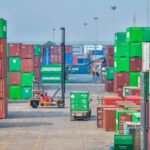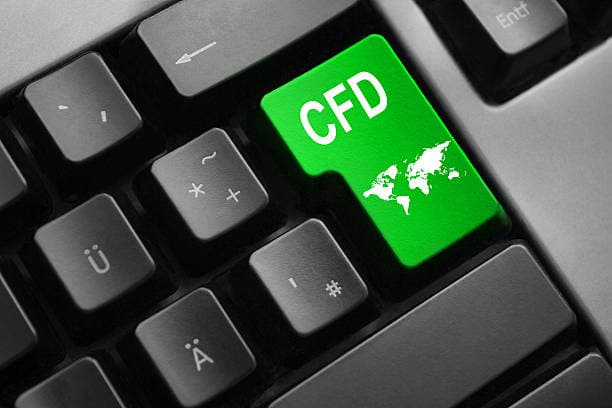In the ever-evolving landscape of finance, Traders and Global Markets are at the forefront of economic activity, shaping and being shaped by the tides of change. Today, we dive into the top trends that are not just influencing but redefining how we approach these dynamic spaces. Let’s embark on this journey without the formalities, diving straight into the heart of the matter with a casual yet insightful exploration.
The Rise of Digital Currencies
Traders, always on the lookout for the next big thing, have been flocking to digital currencies in recent years. The allure is clear: a decentralized form of currency that operates on blockchain technology, offering a new frontier for investment and trade. Bitcoin, Ethereum, and a host of other cryptocurrencies have captured the imagination of the financial world, creating a new asset class that challenges traditional financial systems. The impact on Global Markets has been significant, with digital currencies providing a new avenue for diversification and speculation.
The rise of digital currencies isn’t just about investment; it’s also about the underlying technology. Blockchain, the distributed ledger system that powers cryptocurrencies, is being recognized for its potential to revolutionize various industries. From supply chain management to financial services, the implications are vast, and Traders are keen to understand and capitalize on these changes.
Sustainable Investing Gains Momentum
As the world grapples with the realities of climate change and the need for sustainable development, sustainable investing has emerged as a key trend in Global Markets (In Arabic, it is called “الاسواق العالمية“). Traders are increasingly considering the environmental, social, and governance (ESG) factors of their investments, leading to a surge in demand for green bonds and other ESG-focused financial products.
This shift towards sustainable investing is not just a moral or ethical choice; it’s becoming a financial imperative. Studies have shown that companies with strong ESG practices tend to outperform their peers, making sustainability a key factor in investment decisions. The Global Markets are responding by offering a wider array of sustainable investment options, catering to the growing demand from Traders who are conscious of the long-term impact of their actions.
The Power of Big Data and AI in Trading
In today’s data-driven world, Traders are leveraging the power of big data and artificial intelligence to gain a competitive edge in Global Markets. Advanced algorithms and machine learning models are being used to analyze vast amounts of data, predict market trends, and execute trades with unprecedented speed and accuracy.
The integration of AI in trading is transforming the way Traders (In Arabic, it is called “المتداول“) operate. It’s no longer just about human intuition and experience; it’s about harnessing the power of technology to make more informed decisions. This trend is reshaping the landscape of Global Markets, with AI-driven trading platforms and tools becoming increasingly popular among Traders looking to stay ahead of the curve.
The Growing Influence of Social Media on Trading
Social media platforms have become more than just a place for personal connections; they are now a significant force in shaping Trader behavior and influencing Global Markets. Traders are turning to social media for real-time market insights, news, and even investment advice.
The impact of social media on trading cannot be understated. It has democratized access to financial information, allowing Traders to make more informed decisions. However, it also brings challenges, such as the spread of misinformation and the potential for market manipulation. As social media continues to grow in influence, Traders and Global Markets must navigate these challenges to maintain integrity and stability.
The Emergence of Decentralized Finance (DeFi)
Decentralized Finance, or DeFi, is a relatively new trend that has the potential to disrupt traditional financial systems. By leveraging blockchain technology, DeFi aims to create a more open, transparent, and accessible financial system.
Traders are intrigued by the possibilities that DeFi offers, such as the ability to lend, borrow, and trade financial products without intermediaries. This trend is particularly significant for Global Markets, as it challenges the status quo and presents new opportunities for innovation and growth.
As DeFi continues to evolve, it’s clear that it will play a significant role in shaping the future of finance. Traders and Global Markets must adapt to these changes, embracing the potential benefits while mitigating the risks associated with this new financial paradigm.
The Increasing Role of Geopolitics in Global Markets
Geopolitics has always played a role in shaping Global Markets, but recent events have highlighted its increasing influence. Trade wars, political tensions, and economic sanctions are just a few examples of how geopolitical developments can impact financial markets.
Traders must stay informed about geopolitical events and their potential impact on the markets. This trend underscores the importance of a global perspective in trading, as events in one region can have far-reaching consequences for Traders and Global Markets worldwide.
The Future of Trading: Adapting to Change
As we’ve seen, the world of Traders and Global Markets is constantly evolving, driven by a variety of trends and technological advancements. Adaptability is key in this dynamic environment, and Traders must be willing to embrace change and stay ahead of the curve.
Whether it’s the rise of digital currencies, the shift towards sustainable investing, the power of big data and AI, the influence of social media, the emergence of DeFi, or the increasing role of geopolitics, Traders and Global Markets are at the forefront of these changes. By understanding and adapting to these trends, Traders can position themselves for success in an ever-changing financial landscape.
In conclusion, the trends shaping Global Markets today are as diverse as they are impactful. Traders must navigate this complex terrain, leveraging new technologies, staying informed about geopolitical events, and embracing sustainable practices. The future of trading is uncertain, but one thing is clear: those who can adapt and evolve will be best positioned to thrive in the Global Markets of tomorrow.

 How Much Is Luggage Storage In Bangkok?
How Much Is Luggage Storage In Bangkok?  Proven SEO Secrets to Get Your Website on the First Page of Google
Proven SEO Secrets to Get Your Website on the First Page of Google  Why Slide Truck Services in Rama 2 Are a Lifesaver for Stranded Drivers
Why Slide Truck Services in Rama 2 Are a Lifesaver for Stranded Drivers  10 Smart Weight Loss Tips That Actually Work in Real Life
10 Smart Weight Loss Tips That Actually Work in Real Life  Why Slide Truck Services in Lat Krabang Are the Smart Choice for Emergencies
Why Slide Truck Services in Lat Krabang Are the Smart Choice for Emergencies  Understanding Partial Hospitalization Programs (PHPs)
Understanding Partial Hospitalization Programs (PHPs)  The Science of Wonder: Creating Perfect Birthday Magic
The Science of Wonder: Creating Perfect Birthday Magic  Effective Strategies for Healthcare Advertising: A Comprehensive Guide
Effective Strategies for Healthcare Advertising: A Comprehensive Guide 